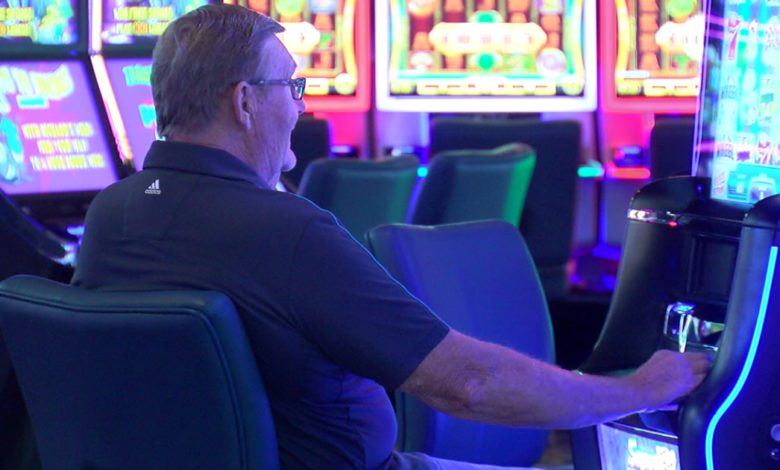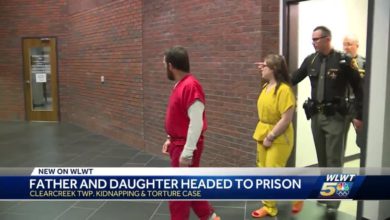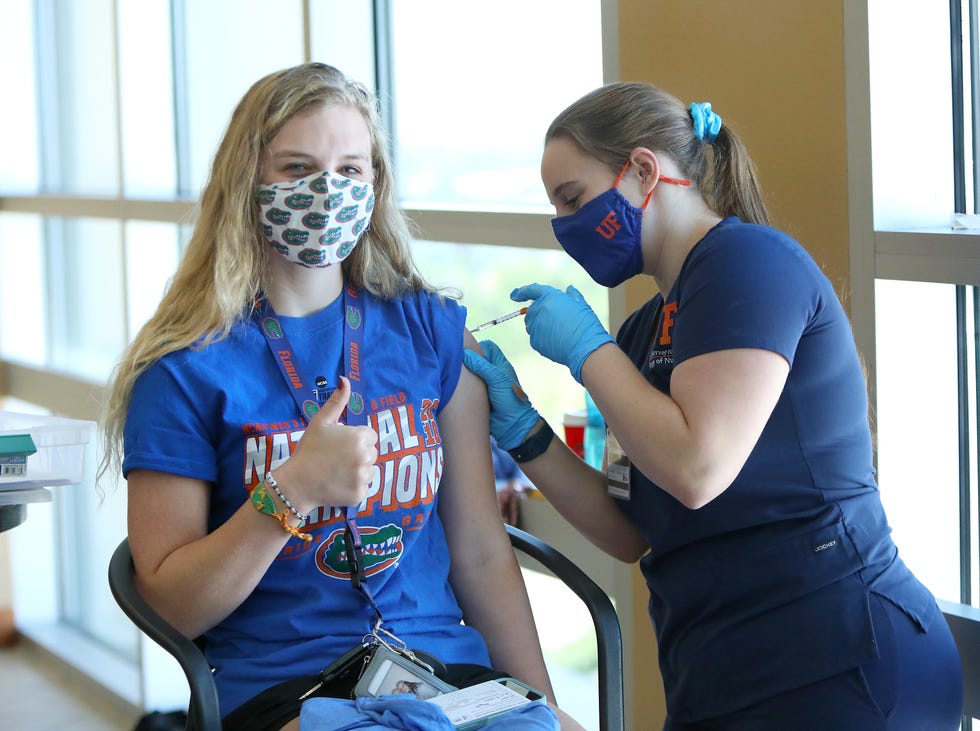
CINCINNATI — Kentucky’s horse racing industry had a big week in Frankfort, where the Kentucky General Assembly banned a potential threat to its growing slot machine segment while inching closer to the legalization of sports betting at Kentucky horse tracks.
The wins are partly due to lawmakers with family or financial ties to the industry, including Senate Majority Leader Damon Thayer.
“On behalf of the 60,000 jobs and billions of economic activity our signature horse industry provides, I proudly vote aye,” Thayer proclaimed Mar. 13, while casting his vote for a ban on what the industry calls ‘gray machines.’
They are video games that resemble slot machines but are not licensed by the Kentucky Horse Racing Commission. The ban of these games, as authorized by House Bill 594, is a win for the industry because of historical horse racing machines — which also resemble slots. And they racked up $4.5 billion in bets at Kentucky horse tracks in the 2022 fiscal year, according to state data.
Sports betting could add more than $2 billion in bets to that total, according to the sponsor of House Bill 551, which cleared a senate panel this week.
“The public wants this,” Thayer said Mar. 15, while urging the Senate Licensing & Occupations Committee to recommend the bill’s passage by the full senate. “We can’t stop people from doing things that are bad for them.”
Thayer is one of six Kentucky lawmakers who disclosed financial ties to the horse-racing industry in annual filings with the Kentucky Legislative Ethics Commission. Kentucky law generally requires legislators to abstain from votes when they could directly benefit from the outcome in a way that is “particular to the legislator,” according to a 2008 opinion by the ethics commission. House bills 551 and 594 do not “meet the threshold for abstention,” said Angela Billings, spokeswoman for the Kentucky Senate Majority.
But that answer doesn’t satisfy Kama Reed, a small-business owner who learned more than she wanted to know about Kentucky’s legislative process in regular trips to Frankfort this year.
“Between horses and bourbon, they pretty much own Kentucky,” said Reed, vice president and co-owner of BJ Novelty in Covington. “Small business is always going to have a foot on the neck of their livelihood when we come into battle with either of those industries.”
Reed’s company gets about 20% of its revenue from “skill games,” as she calls them. BJ Novelty has installed about 400 games in Louisville and Northern Kentucky and employs six people to service them. Reed testified against House Bill 594 this year and was disappointed to learn that lawmakers who played key roles in advancing the bill have financial ties to the horse racing industry.
“It’s very unfair,” Reed said. “This is not only a large business vs small-business issue. Now it becomes money in a representative’s pocket, potentially. So, that is pretty scary if you ask me.”
People familiar with the legislative process in Frankfort are aware of horse-industry connections in a way that most constituents are not, said Steve Bittenbender, a Louisville journalists who follows gambling legislation for Casino.org.
One example is Rep. Killian Timoney, R-Lexington, sponsor of House Bill 594.
“His dad and his uncle are prominent equine vets,” Bittenbender said. “House Speaker David Osborne has connections to the horse industry. And it goes well beyond that.”
Timoney said his father and uncle are retired from the University of Kentucky, where they worked as research veterinarians – not affiliated with the racing industry.
“The critics are searching for anything to make our policy null and void,” he added. "I hold no Ill will towards the small business owners."
Rep. Osborne, R-Prospect, did not return an email seeking comment. But in 2020, he received an opinion from Kentucky’s Attorney General saying his wife’s ownership of Churchill Downs stock did not preclude him from voting on sports-betting legislation.
“Kentucky horse racing interests are very similar to casino owners in Atlantic City and tribal gaming nations in California,” Bittenbender said. “They wield incredible clout and anything that is gaming related in their particular state, they’re going to have a hand in.”
The WCPO 9 I-Team reviewed 137 financial disclosure forms for mentions of horse ownership and income from Kentucky tracks or gaming interests. We found a lot of farmers, lawyers and educators but only six horse-industry connections. Here are the details of their financial disclosures and what role, if any, they played in advancing house bills 594 and 551:
- Rep. Osborne, R-Prospect, lists his occupation as horse owner/breeder on financial disclosure forms, along with ownership of Gallant Stables and Deerfield Farm Racing. He guided the gray games bill through an unusual challenge in the house. Members initially voted to table the bill on Mar. 3, but passed it on Mar. 8.
- Rep. Mathew Koch, R-Paris, is co-owner of Shawhan Place LLC, a “full-service thoroughbred farm” near Lexington. He chairs the house committee that recommended passage of the gray-gaming ban on Mar. 3 and the sports betting bill Mar. 8.
- Rep. Gex “Jay” Williams, R-Verona, is the husband of a “therapeutic riding instructor,” according to his financial disclosure form. Their daughter worked as a “licensed exercise jockey for Steve Cauthen” in her teens, according to Williams’ response to 2022 candidate survey by the Kentucky Equine Education Project. In that survey, Williams expressed support for a ban on gray games and sports betting “with considerations for families of addicted gamblers.”
- Sen. Reginald Thomas, D-Lexington, is an owner of Living the Dream LLC, a thoroughbred racing syndicate. He chairs the senate’s minority caucus and voted for House Bill 594 on the senate floor and House Bill 551 in the Senate Licensing and Occupations committee.
- Sen. Thayer, R-Georgetown, owns horses through Half Century Equine Ventures LLC. His private-sector career has included leadership roles at Turfway Park in the 1990s and the National Thoroughbred Racing Association and Breeder’s Cup in the 2000s. Thayer has long supported the legalization of sports betting at Kentucky tracks, but this year is the first time he’s gotten a bill out of a senate committee.
- Sen. Robin Webb, R-Grayson, lists ownership of RL Webb Farms and Webb Equine Partnership in her financial disclosures. She voted in favor of House Bill 594 but hasn’t had the chance to vote in the senate on sports betting.
Those industry connections were particularly bothersome for critics of House Bill 594 when the house initially tabled the bill only to reverse course and pass it five days later. Reed wonders what pressure was applied to representatives who initially balked at the bill and how much of a role the horse industry played in those discussions.
“I’ve never seen anything like it and quite frankly most other people have not either,” said Reed, owner of BJ Novelty in Covington. “I have no idea why over 20 representatives flipped their nays to a yea.”
Northern Kentucky Republican Adam Koenig doubts whether any undue pressure was applied, based on media accounts of the vote and his experience with house leadership.
“Never once did I ever see Speaker Osborne tell people they had to vote one way,” said Koenig, who served in the Kentucky house for 25 years ending Jan. 1. “He may have asked, may have cajoled. I’ve never seen him trade anything for a vote.”
Koenig also said industry connections are inevitable in Kentucky’s part-time legislature, where members aren’t paid enough to avoid full-time work in the private sector.
“It’s Kentucky,” Koenig said. “You’re going to have horse people in the legislature. It’d be kind of strange if you didn’t. We (also) have lawyers. Should they all get out of running bills about the law? Should only other people write those bills? Of course not. They’re the experts.”






